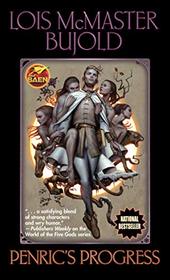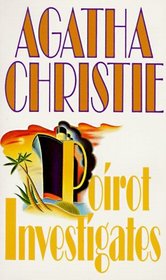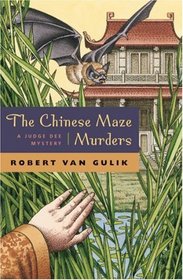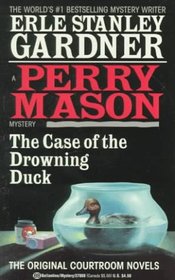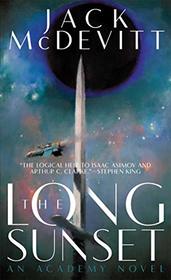Penric’s Progress by Lois McMaster Bujold
Review by Cyndi J. (cyndij)
Penric’s Progress by Lois McMaster Bujold is a collection of 3 fantasy novellas set in the World of the Five Gods. You don’t need to have read her previous books set there in order to enjoy these.
In the World of the Five Gods, the gods are the Father of Winter, the Lady of Spring, the Mother of Summer, the Son of Autumn, and the Bastard. They all have various traits – maybe call them specialties? – for instance, the Father is also associated with justice, the Son with hunting, and so on. Most people pray to one god or another as appropriate to their situation in life – a girl to the Lady, a father to the Father and so forth. The Bastard takes everything that’s left over or odd. When you die, your soul is taken up by your god. The priests have sacred animals that signal which god has claimed your soul. For most people, that’s as close as they get. Some might be given a little extra sense, or gift, and they are considered saints. But for a few…
Penric is a younger son of a minor noble family on his way to his wedding when he stops to assist a dying woman. Little does he know she is a senior Temple sorceror, bearing a demon inside. And when the host dies, the demon needs someone else to host and will jump to the strongest person nearby. Guess who’s going to get it this time? Hosting a demon isn’t necessarily a bad thing. It gives the human special powers of sight and some interesting talents. But it takes a strong personality to train the demon, to channel their magic into helpfulness instead of mere chaos, and to keep it from consuming their host entirely and then running amok. Hosting a demon means giving up your normal life and joining the Bastard’s temple. Some people would find this horrifying. Once over the initial shock, Penric thinks maybe this won’t be so bad and is rather looking forward to a life of study. But there’s going to be a few bumps along the way.
The first novella, PENRIC’S DEMON, introduces Penric. How he becomes the host and how he and the demon manage to get along is the main story. There is more than one person who doesn’t want this pairing to succeed, so Penric and his demon Des will have to figure out an escape plan if they want to live.
PENRIC AND THE SHAMAN finds Penric and Des chasing after a shaman, who seems to have murdered a person and taken off with his soul. Another interesting theological construct, and a lovely ending.
In PENRIC’S FOX, we go back to the shamans and the great-souled animals to solve the mystery of a murdered woman.
Bujold is a fabulous writer, she’s won many awards including the Science Fiction Writer’s Association Grand Master. There’s not a wasted word in any of these – she neatly captures everything you need to know in the conversations, without being boring or pedantic about it. Her characters have depth and personality and her imagery is first-rate. Penric is so engaging and amiable, he’s almost too perfect, and Des makes an excellent balance as the sarcastic and slightly cynical elder. There’s a high emotional quotient too – victories and tragedies that you can really feel. These are excellent novellas, just long enough to read in a couple hours and be a complete story.

